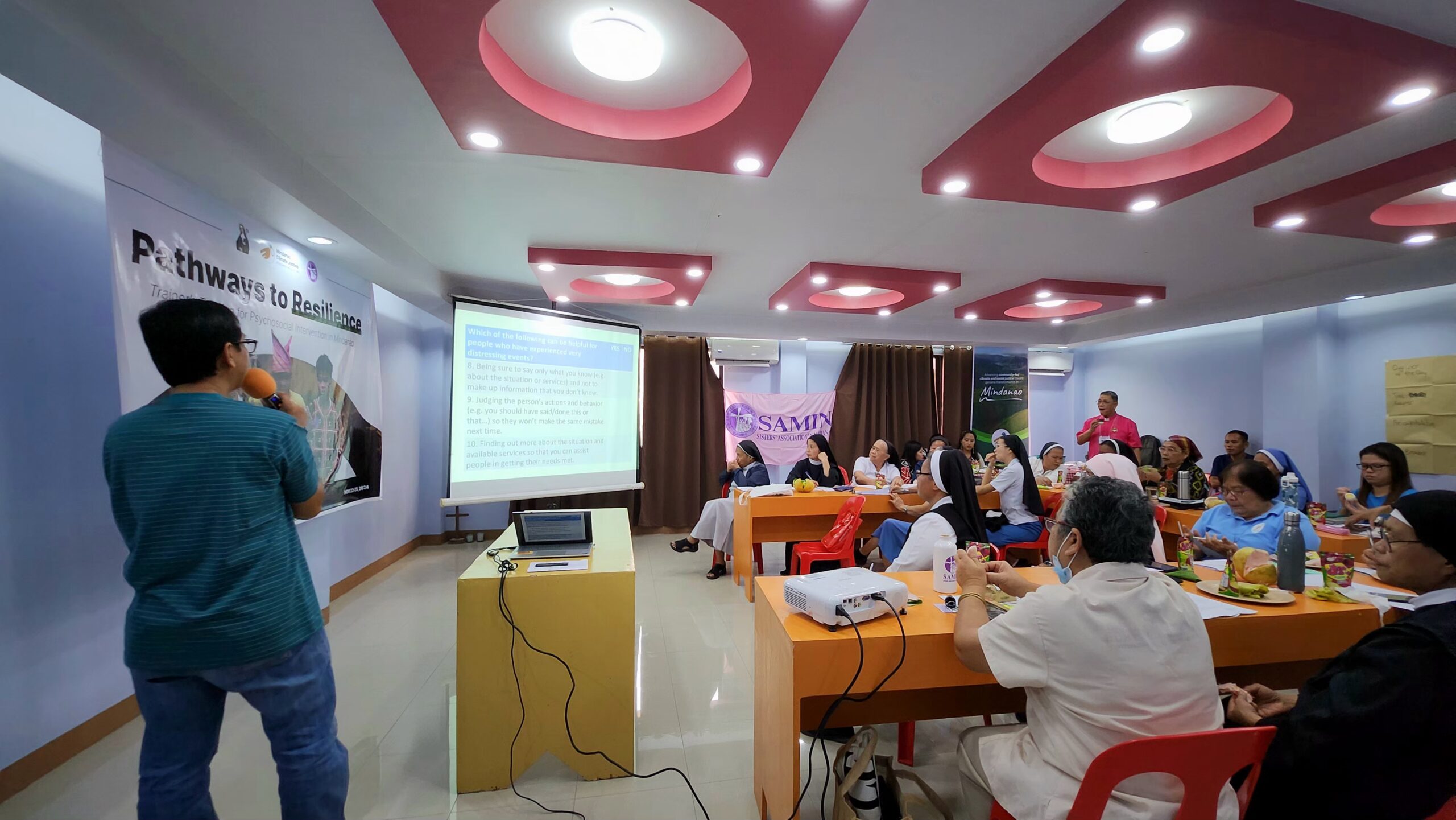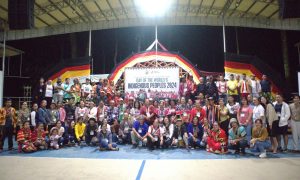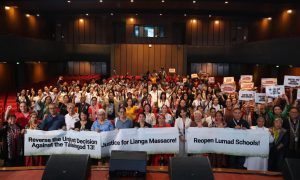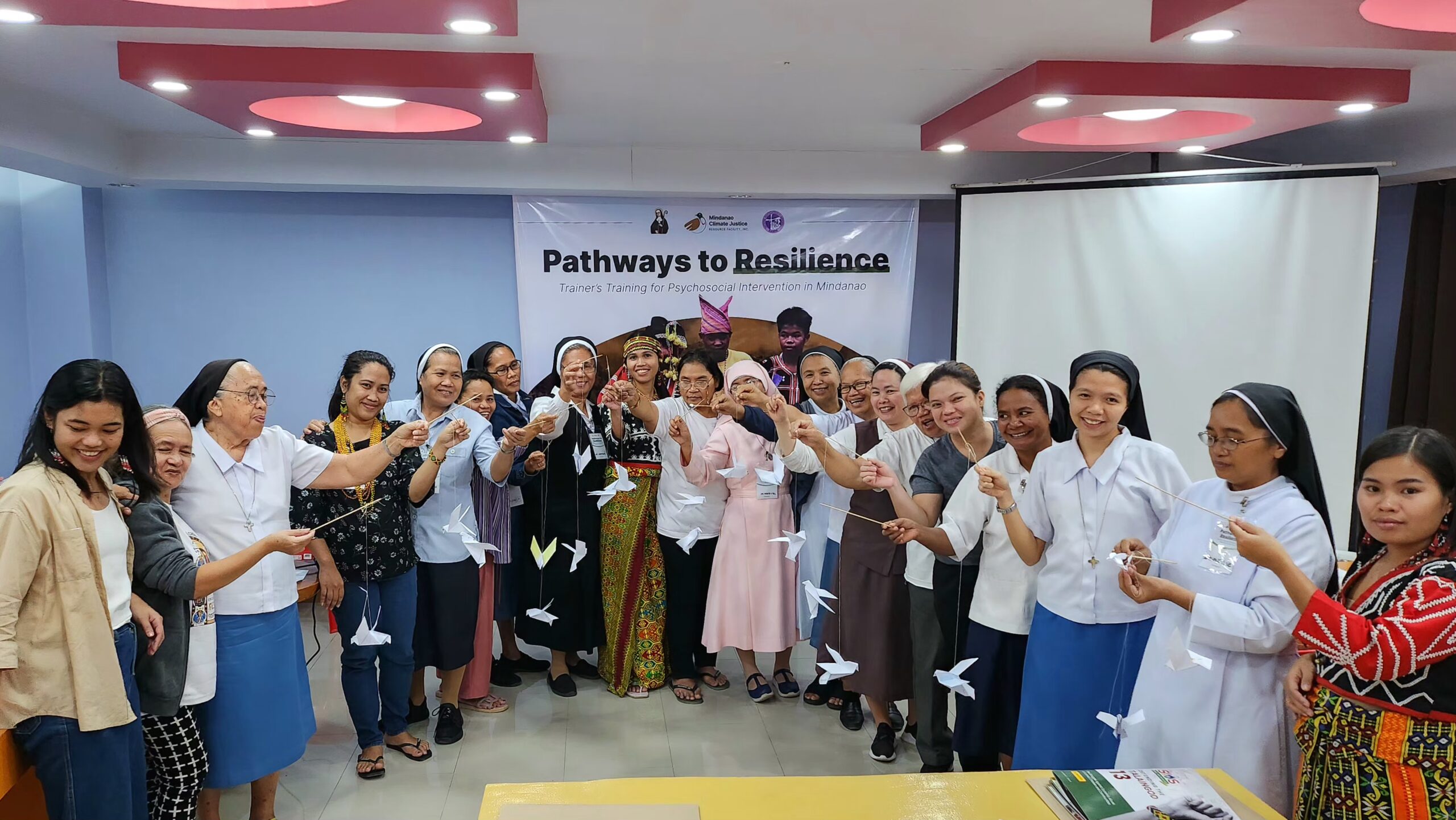
Mindanao’s Converging Crises: Prioritizing Collective Care for Healing and Resilience
Mindanao’s communities are navigating a landscape marked by displacement, conflict, and systemic poverty, where mental health challenges are deeply intertwined with broader socio-economic issues. Between 2017 and 2022, 4.4 million displacements were recorded in the region, 83% due to natural disasters and 17% linked to conflict, primarily in BARMM and SOCSKSARGEN (IDMC, 2023). Meanwhile, 60% of the population lives below the poverty line, with hunger affecting 1.4 million families (Philippine Statistics Authority, 2023).
The escalating climate crisis further compounds these challenges, displacing families, disrupting livelihoods, and leaving a profound psychological impact on affected communities. This intersection between mental health and the climate crisis underscores the need for holistic approaches that address both immediate emotional needs and long-term resilience.
In response to these multifaceted crises, Mindanao Climate Justice (MCJ) launched the Panalipod Program in 2023. Initially designed to provide urgent support to human rights defenders (HRDs) in critical need, the program has since evolved to address the mental health needs of communities, HRDs, and organizations through tailored training and interventions. Guided by a framework of holistic and collective care, the program collaborates with diverse service providers and adapts its approach based on ongoing learning and community needs.
The Evolving Need for Psychosocial Interventions
The intersection of post-pandemic recovery, environmental disasters, militarization, and systemic inequality has created a growing need for psychosocial support. In Mindanao, access to mental health services is critically limited, with only 41 psychiatrists serving a population of 26 million (DOH, 2023). Marginalized groups, including Indigenous Peoples and displaced communities, are particularly affected, often relying on traditional practices and grassroots initiatives for support.
The Panalipod Program addresses these gaps by focusing on community-driven approaches that integrate cultural traditions with modern psychosocial practices. This evolving model prioritizes collaboration, learning, and adaptability to meet the unique challenges faced by Mindanao’s communities.
Pathways to Resilience: A Recent Milestone
As part of its mission, MCJ recently held the Pathways to Resilience: Trainer’s Training for Psychosocial Intervention from November 22 to 25, 2024, in Cagayan de Oro. Organized in partnership with the Sisters Association in Mindanao (SAMIN) and ENFIDE Institute, this event brought together 26 participants, including sisters, lay leaders, and Indigenous women from five regions of Mindanao. Led by psychiatrist Dr. Reginald Pamugas, the training reflected MCJ’s commitment to fostering community-led mental health solutions.
Participants engaged in sessions on:
- Psychological First Aid (PFA): Techniques for providing immediate emotional support, enhanced by traditional storytelling practices.
- Trauma-Informed Care: Approaches tailored to address the impacts of trauma while respecting cultural and spiritual contexts.
- Stress Management Techniques: Practical tools for emotional well-being, such as mindfulness and nature-based activities.
- Community-Based Mental Health Strategies: Enabling participants to co-create interventions suited to their local realities.
The event underscored MCJ’s emphasis on adaptability, blending modern methods with practices like the Moro kanduli (thanksgiving rituals) and Indigenous pag-ampo (prayer rituals) to ensure cultural relevance and impact.
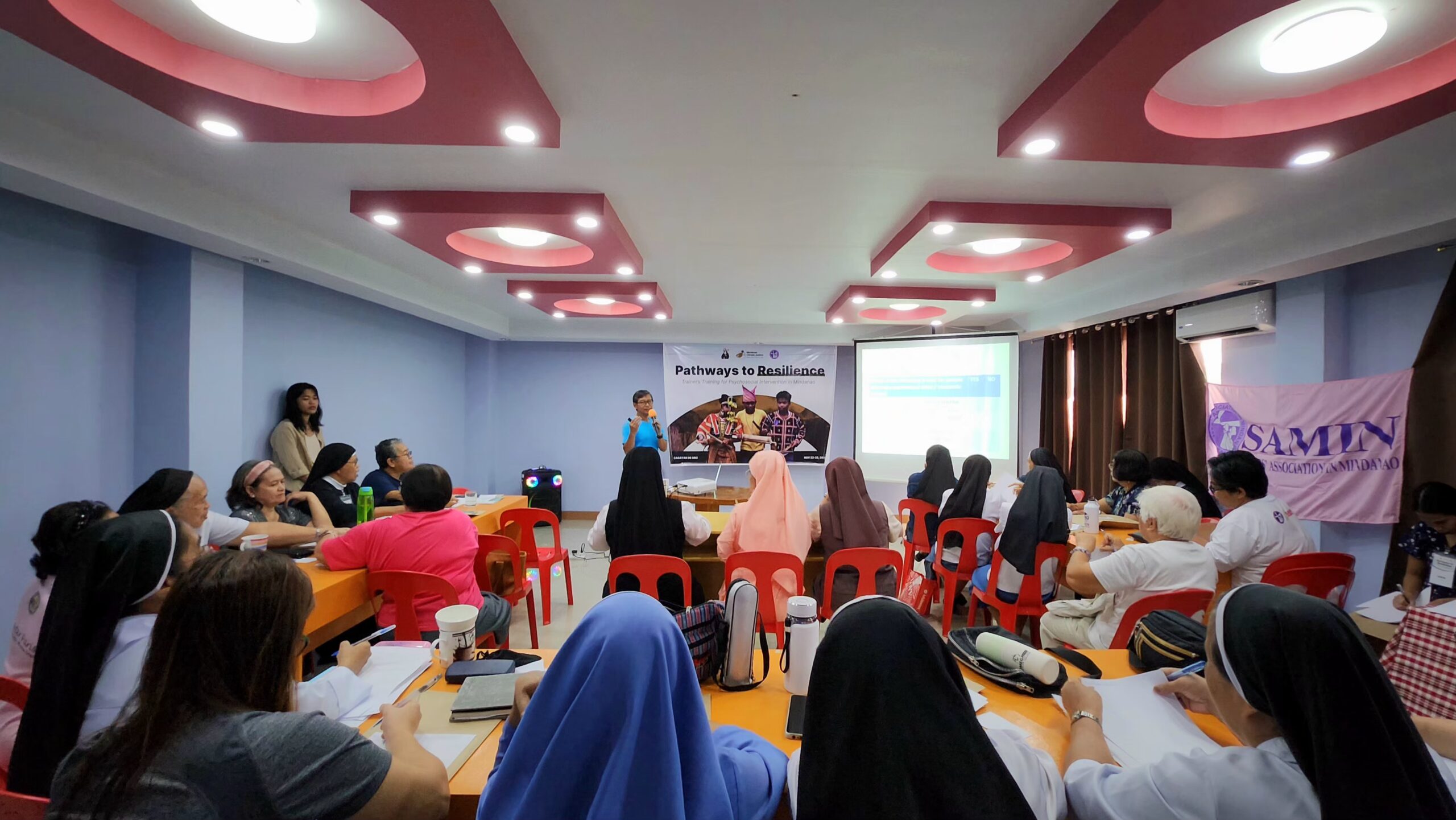
A Train-the-Trainer Model for Sustainability
The approach of the Panalipod Program is its train-the-trainer model, designed to build sustainable mental health networks across Mindanao. By equipping local leaders with the tools and knowledge to deliver psychosocial interventions, the program creates a multiplier effect, expanding its reach to underserved communities.
This model emphasizes:
- Cultural Sensitivity: Rooting interventions in local traditions and belief systems.
- Collective Care: Establishing peer support networks and communal spaces for healing.
- Sustainability: Building capacity through ongoing training, feedback, and professional development.
Through this approach, MCJ ensures that mental health support is not only accessible but also aligned with the lived experiences and cultural identities of the communities it serves.
Challenges and Continuous Learning
While the Panalipod Program has achieved significant milestones, challenges persist. Limited resources, the psychological demands on trainers, and systemic barriers such as militarization and the villification of civil society organizations continue to impact the program’s scalability and effectiveness.
MCJ addresses these challenges by fostering partnerships, advocating for systemic reforms, and continuously refining its framework based on community feedback and collaboration with diverse service providers. This adaptive approach ensures the program remains responsive to the evolving needs of Mindanao’s communities.
A Commitment to Healing and Resilience
The Panalipod Program exemplifies MCJ’s vision of a holistic and culturally grounded response to mental health challenges. By combining modern psychosocial practices with traditional wisdom, the program empowers communities to take ownership of their healing processes.
As MCJ continues to learn and evolve, it remains steadfast in its commitment to creating a Mindanao where mental health care is accessible, culturally appropriate, and deeply rooted in resilience. With every intervention, the program moves closer to a future where communities can rebuild with dignity, strength, and hope.

